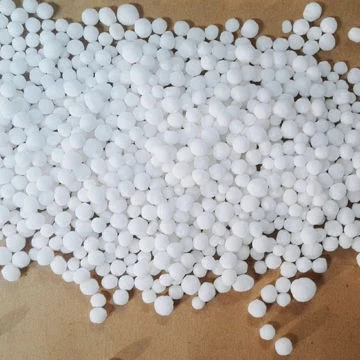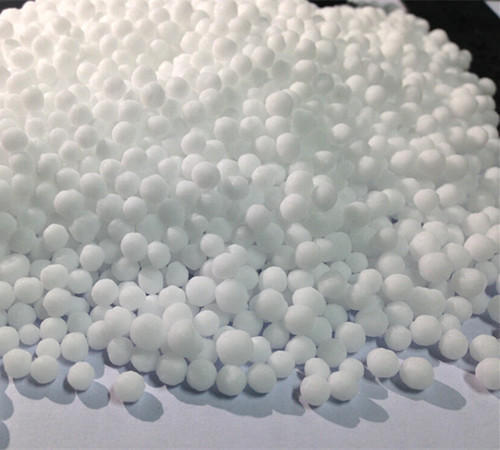Urea is one of the most widely used nitrogen-based fertilizers in agriculture due to its high nitrogen content (around 46%). It’s produced by reacting ammonia with carbon dioxide under high pressure, and is essential for crop growth. Because of its global demand, urea is supplied by both large-scale international chemical companies and smaller regional suppliers. Here’s a more detailed breakdown of where you can source urea and how suppliers operate:
Types of Urea Supplier:
Urea suppliers can be categorized into several types:
- Manufacturers: Companies that produce urea directly, usually from raw materials like natural gas. These are typically large, industrial operations with major production capacities.
- Distributors/Traders: They do not produce urea but buy in bulk from manufacturers and resell to agricultural or industrial users. They may operate on local, regional, or international levels.
- B2B Marketplaces: These platforms allow businesses to list their products, including urea, and facilitate trade between suppliers and buyers globally. Suppliers here could be manufacturers or traders.
Key Global Urea Manufacturers:
The major urea manufacturers globally are mostly integrated chemical companies that have large-scale operations. Some key names include:
- Yara International (Norway): Yara is a leading global supplier of crop nutrition solutions. They produce a wide range of fertilizers, including urea. Yara operates in over 60 countries and is known for its environmental and sustainability initiatives.
- Nutrien (Canada): One of the largest fertilizer producers in the world, Nutrien produces a significant amount of nitrogen-based fertilizers like urea. They cater to both large-scale agricultural enterprises and local farmers.
- OCI Nitrogen (Netherlands): OCI Nitrogen is one of the largest producers of urea and other nitrogen-based fertilizers in Europe. They focus heavily on innovation and sustainable farming solutions.
- Saudi Basic Industries Corporation (SABIC) (Saudi Arabia): SABIC, a global leader in chemicals, is one of the Middle East’s biggest suppliers of urea. They export urea globally and have a strong presence in Asia and Africa.
- Indorama Ventures (Thailand): A major Asian supplier of urea, especially for agricultural and industrial applications. Indorama has expanded into multiple sectors, including fertilizers.
- Koch Fertilizer (USA): A subsidiary of Koch Industries, Koch Fertilizer is one of the largest U.S. producers and distributors of urea fertilizers, including urea. They supply not just within the U.S. but also globally.
Regional Urea suppiler:
Asia:
- China: The largest producer and exporter of urea globally. Companies like Sichuan Meifeng Chemical and Qingdao Huanghai are some major players. China’s urea production is driven by its large domestic demand and availability of raw materials like coal.
- India: The Indian government heavily subsidizes urea production, leading to a large domestic production capacity. National Fertilizers Limited (NFL) and Indian Farmers Fertilizer Cooperative Limited (IFFCO) are two of the biggest players in India. India also exports surplus urea to neighboring countries.
- Indonesia and Malaysia: Southeast Asian countries, including Indonesia’s Pupuk Indonesia Holding Company, are known for their urea exports.
Middle East:
- The Middle East, particularly countries like Saudi Arabia, Qatar, and Iran, have access to abundant natural gas, which is a primary feedstock for urea production. Major companies like Qatar Fertilizer Company (QAFCO) and SABIC are major exporters to Europe and Asia.
Africa:
- Nigeria: Emerging as a urea powerhouse, Nigeria, with its abundant natural gas reserves, has seen growth in urea production, particularly with companies like Dangote Fertilizer expanding operations. The country is exporting to other African countries and beyond.
Europe:
- European urea production is often focused on high-quality, environmentally friendly fertilizers due to stringent regulations. BASF and OCI Nitrogen are key European players, and their production facilities focus on high-quality urea solutions.
United States:
- The U.S. has many urea production plants, especially in regions with access to natural gas. CF Industries and Koch Fertilizer are major producers, supplying domestic markets and exporting abroad.

How to Find Urea suppiler:
Depending on your location and requirements (e.g., volume, pricing, quality, certifications), here are a few ways to find reliable urea suppliers:
- B2B Platforms:
- Alibaba: Has a wide range of suppliers from China, India, and Southeast Asia. You can check for reviews, certifications, and product details.
- IndiaMART: Primarily focused on Indian suppliers but includes a large variety of fertilizers, including urea.
- Global Sources: Another global B2B platform that connects you with suppliers primarily from Asia.
- Made-in-China: Another platform similar to Alibaba, mostly featuring Chinese suppliers of industrial goods including urea.
- Industry Trade Shows & Conferences: Many urea and fertilizer suppliers participate in international agricultural and chemical trade shows. Attending these events, either in person or virtually, can give you direct access to suppliers. For example, The International Fertilizer Association (IFA) hosts global and regional events where suppliers often showcase their products.
- Chemical & Fertilizer Associations: Joining or contacting industry associations like IFA or regional groups (such as Fertilizer Association of India) can help you find lists of trusted suppliers.
- Direct Manufacturer Contact: For large-scale or bulk purchases, contacting manufacturers directly may provide you with better rates and the ability to negotiate terms. Many manufacturers offer direct sales or can refer you to authorized distributors in your region.
Factors to Consider When Choosing a Urea Supplier:
- Quality: Ensure the supplier adheres to international quality standards like ISO certification or has internal quality controls to ensure purity and effectiveness.
- Volume/Capacity: Consider whether the supplier can meet your volume requirements, especially for large agricultural or industrial applications.
- Logistics: Suppliers should have an efficient distribution network to ensure timely delivery, particularly if you are importing urea internationally.
- Pricing: Compare prices across multiple suppliers to get the best deal, but don’t compromise on quality.
- Certifications and Sustainability: Increasingly, agricultural sectors prefer sustainable and eco-friendly fertilizers. Some suppliers may offer urea with environmentally friendly production methods or additives that improve efficiency.

(FAQ)
What is urea and why is it commonly used?
Urea is a nitrogen-based chemical compound (CO(NH₂)₂) widely used as a fertilizer in agriculture. It contains about 46% nitrogen, making it a highly concentrated nitrogen source for plants. Nitrogen is essential for plant growth, making urea a popular choice for increasing crop yields.
Where is urea typically sourced from?
Urea is produced from ammonia and carbon dioxide, primarily using natural gas as a feedstock. Major urea producers are found in regions with abundant natural gas supplies, such as:
- The Middle East (e.g., Saudi Arabia, Qatar)
- Asia (e.g., China, India, Indonesia)
- The U.S. and Canada
- Europe (e.g., Netherlands, Russia)
- Africa (e.g., Nigeria)
What are the main applications of urea?
- Agriculture: The primary use of urea is as a fertilizer to improve crop yields by supplying nitrogen to plants.
- Industrial: Urea is used in various industrial applications, including in the production of plastics, adhesives, and pharmaceuticals.
- Diesel Exhaust Fluid (DEF): Urea is used in automotive applications to reduce emissions from diesel engines.
Can I buy urea in bulk, and what are the typical quantities offered?
Yes, most suppliers offer urea in bulk. Typical quantities range from:
- Small bags: 25-50 kg bags for small-scale farming.
- Bulk: Large quantities delivered in 1-ton bags (jumbo bags) or shipped via tanker trucks for industrial or large-scale agricultural needs.
